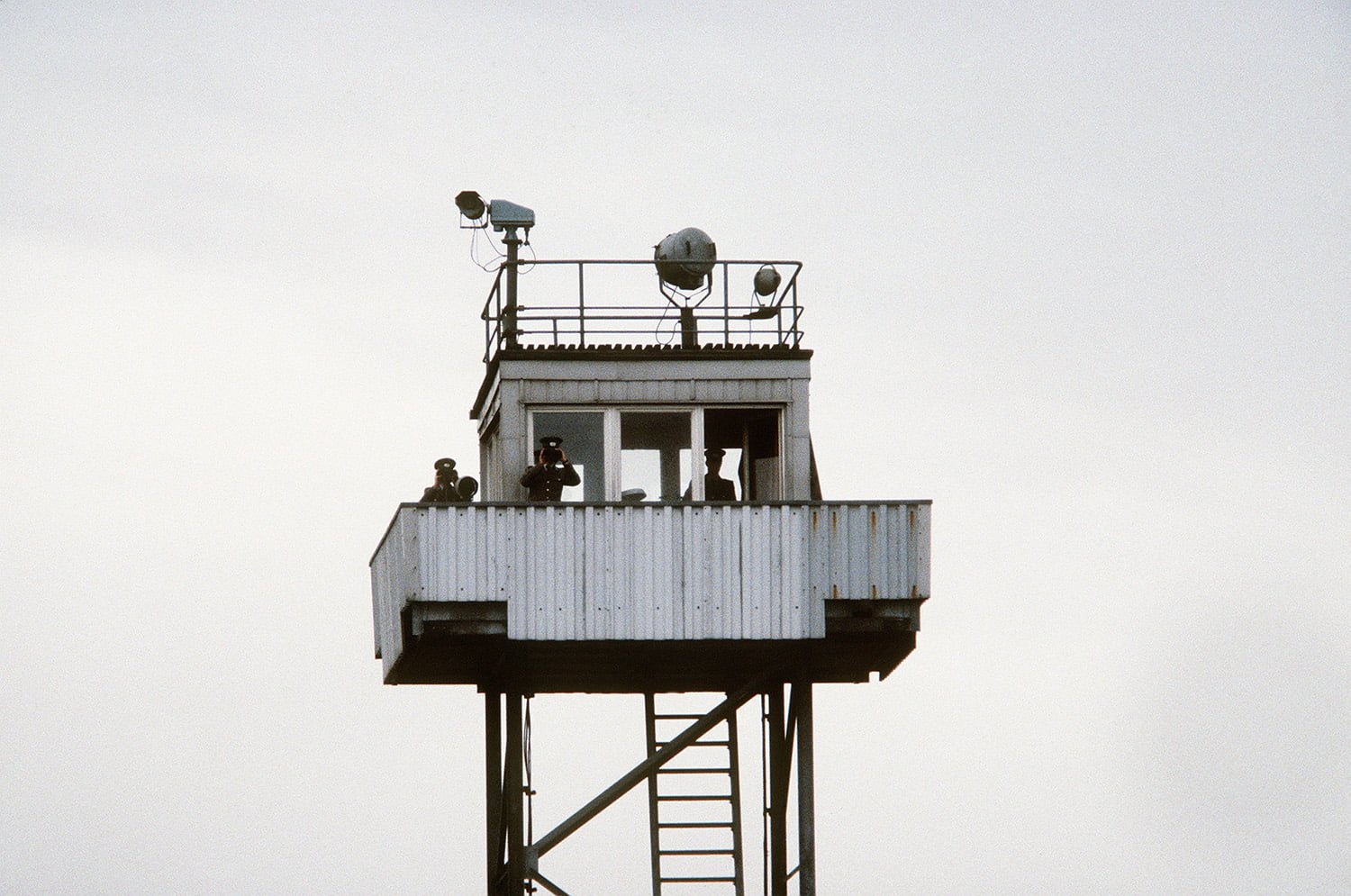
East German border guards man a guard tower at the border between East and West Germany.
Author: SPC5 VINCENT KITTS
“From Stettin in the Baltic to Trieste in the Adriatic, an iron curtain has descended across the Continent.” – Winston Churchill, 5 March 1946
The ‘iron curtain’ has come to be associated with a host of social, political and cultural evils perpetrated by the Soviet-backed Communist regimes that ruled countries in central and eastern Europe from the end of the Second World War until the early 1990s. Behind the iron curtain, state control over every aspect of daily life gave rise to corruption, oppression, deprivation, ethnic conflict, censorship, and general atmosphere of isolation from western democracies and a deep paranoia about western hegemony. Nearly three decades after waves of citizen-led democratic revolutions washed over the former Communist bloc, leaving newly independent nations in their wake, the iron curtain and its legacy continues to leave an indelible mark on contemporary geopolitical relations as well as the socio-cultural development of communities affected both directly and indirectly by the breakup of the Soviet Union. Even popular culture reflects an ongoing preoccupation with the iron curtain era, as evidenced by the popularity of television series such as Chernobyl and The Americans.
Of course, it is possible to identify contemporary echoes of the power dynamics that underpinned the iron curtain. Evidence has confirmed reports of Russian meddling in United States elections in 2016 and 2018 as well as in the 2016 referendum on whether the United Kingdom should remain in the European Union. Human rights abuses in Russia and the 2014 annexation of the Crimea by the Russian Federation have triggered international outrage, with the latter action being punished by Russia’s expulsion from the G7. Recent elections around the world have granted power to far-right political parties and political leaders with authoritarian ambitions that are have been compared to the dictatorial regimes that ruled the former Communist bloc countries. In an era where quality journalism is delegitimised, pro-Government propaganda is promoted as ‘truth’, democratic processes are undermined, education and research are marginalised, the arts and other platforms for dissent are neutralised, and laws are enacted to disenfranchise and discriminate against certain groups, we are once again bearing witness to the evils associated with the iron curtain.
Activities
Conferences
1st Global Inclusive Interdisciplinary Conference
Political Evils: The Iron Curtain and its Legacy
Saturday 14th March 2021 – Sunday 15th March 2021
Lisbon, Portugal
